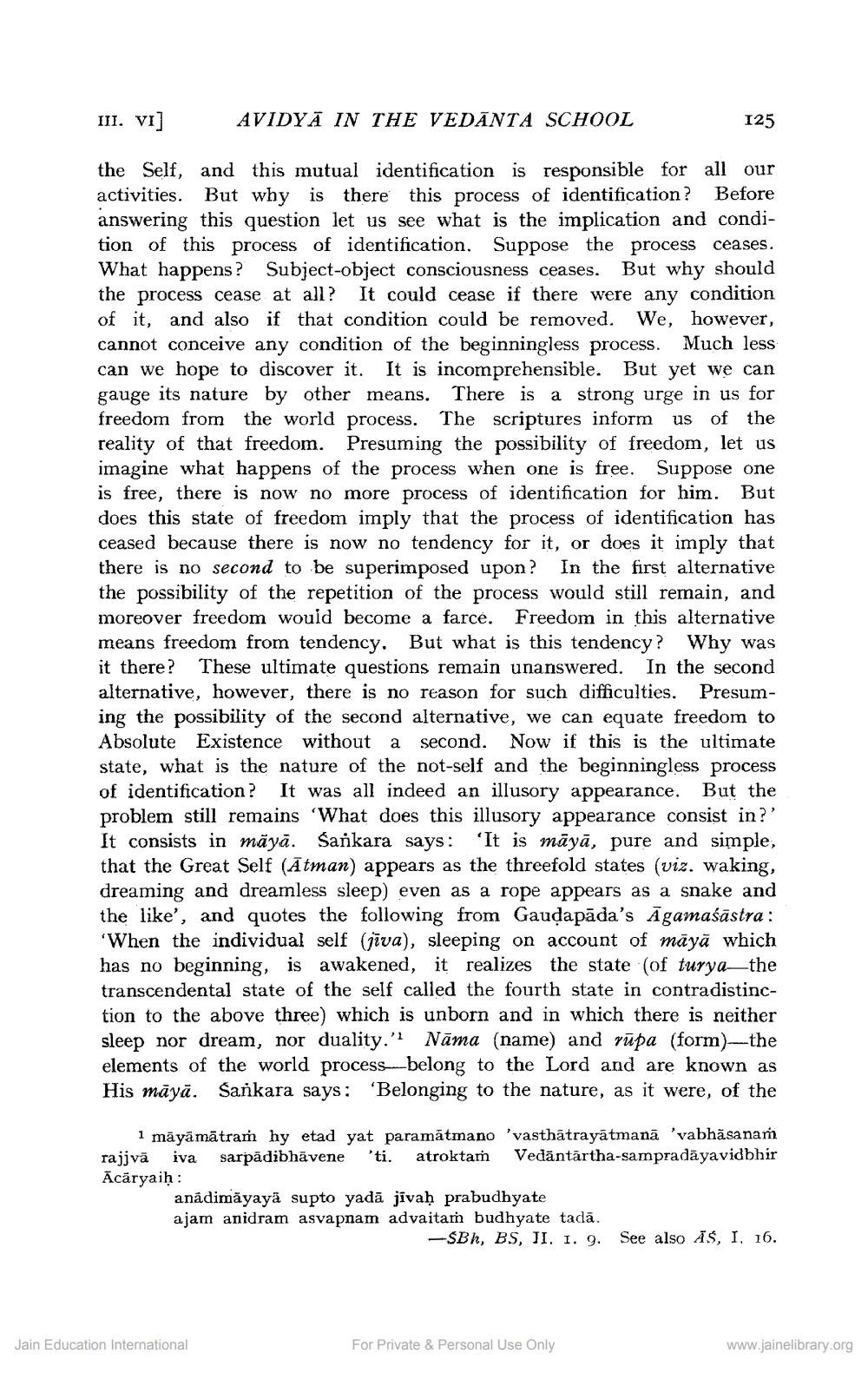________________
III. Vi]
AVIDYA IN THE VEDANTA SCHOOL
125
the Self, and this mutual identification is responsible for all our activities. But why is there this process of identification? Before answering this question let us see what is the implication and condition of this process of identification. Suppose the process ceases. What happens? Subject-object consciousness ceases. But why should the process cease at all? It could cease if there were any condition of it, and also if that condition could be removed. We, however, cannot conceive any condition of the beginningless process. Much less can we hope to discover it. It is incomprehensible. But yet we can gauge its nature by other means. There is a strong urge in us for freedom from the world process. The scriptures inform us of the reality of that freedom. Presuming the possibility of freedom, let us imagine what happens of the process when one is free. Suppose one is free, there is now no more process of identification for him. But does this state of freedom imply that the process of identification has ceased because there is now no tendency for it, or does it imply that there is no second to be superimposed upon? In the first alternative the possibility of the repetition of the process would still remain, and moreover freedom would become a farce. Freedom in this alternative means freedom from tendency. But what is this tendency? Why was it there? These ultimate questions remain unanswered. In the second alternative, however, there is no reason for such difficulties. Presuming the possibility of the second alternative, we can equate freedom to Absolute Existence without a second. Now if this is the ultimate state, what is the nature of the not-self and the beginningless process of identification? It was all indeed an illusory appearance. But the problem still remains What does this illusory appearance consist in?' It consists in māyā. Sankara says: 'It is māyā, pure and simple, that the Great Self (Ātman) appears as the threefold states (viz. waking, dreaming and dreamless sleep) even as a rope appears as a snake and the like', and quotes the following from Gaudapāda's Āgamaśāstra : 'When the individual self (jīva), sleeping on account of māyā which has no beginning, is awakened, it realizes the state (of turya—the transcendental state of the self called the fourth state in contradistinction to the above three) which is unborn and in which there is neither sleep nor dream, nor duality. Nāma (name) and rupa (form)--the elements of the world process belong to the Lord and are known as His māyā. Sankara says: “Belonging to the nature, as it were, of the
1 māyāmatram hy etad yat paramātmano 'vasthātrayātmanā 'vabhāsanam rajivā iva sarpädibhāvene "ti. atroktam Vedāntārtha-sampradayavidbhir Ācāryaiḥ:
anādimāyaya supto yadā jīvaḥ prabudhyate ajam anidram asvapnam advaitam budhyate tadā.
--SBH, BS, JI. I. 9. See also ĀS, I. 16.
Jain Education International
For Private & Personal Use Only
www.jainelibrary.org




